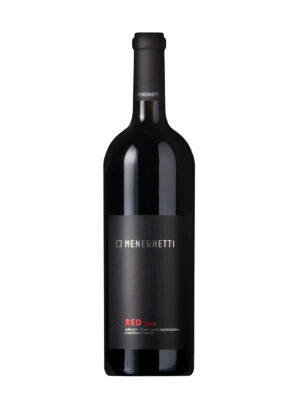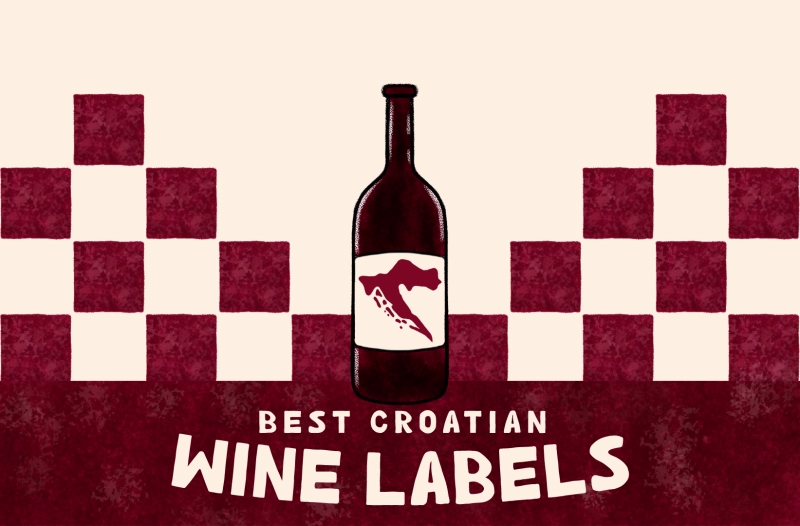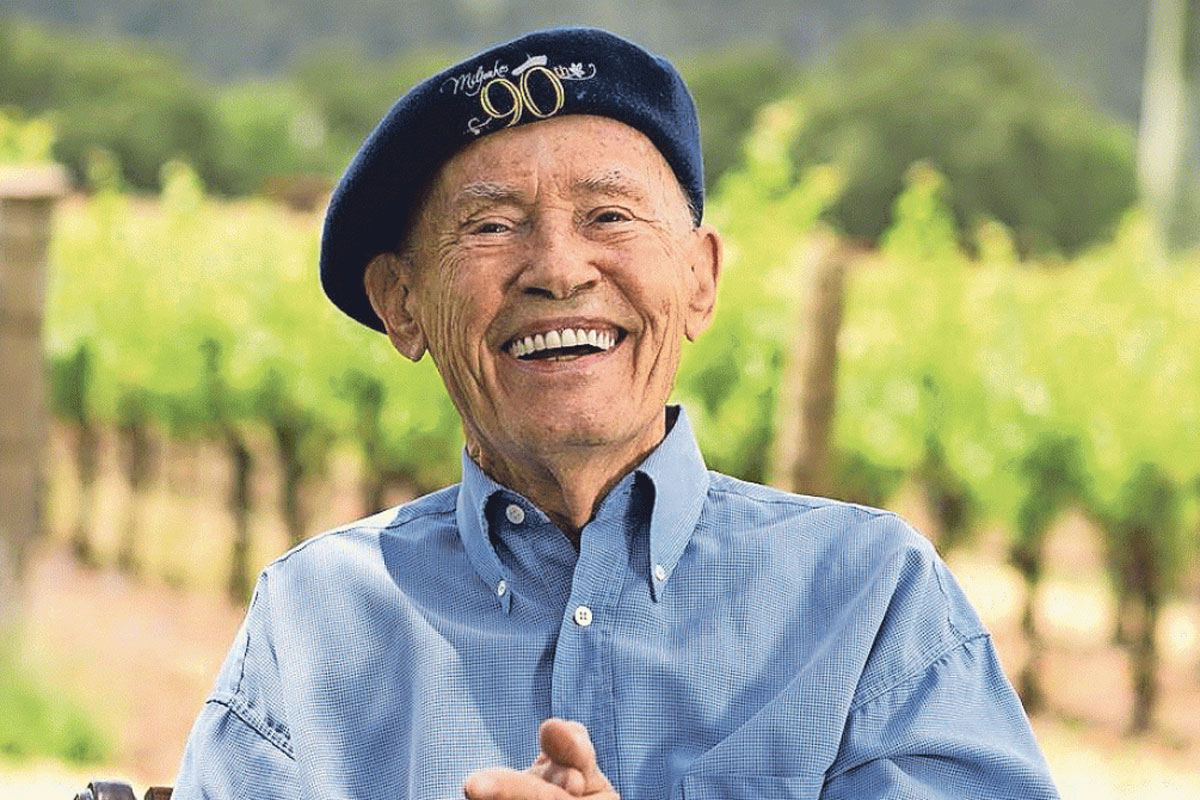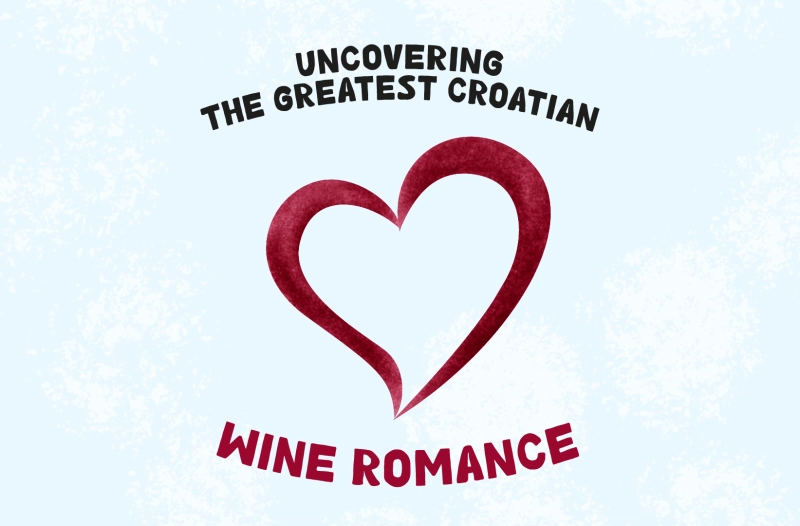Discover Nomad: tasty and refreshing suprise from Domaine Koquelicot Winery
A SIGNATURED WINE: “NOMAD” OF THE DOMAINE KOQUELICOT WINERY IN GRAČIŠĆE An Istrian-Bordeaux blend for hot summer days

When in 2011 they founded the Domaine Koquelicot winery in Gradišće, Olivier Ertzbischoff and Jacqueline Marovac had the initial idea to make in Istria from Chardonnay, that what could not be done in France due to climatic conditions, such as macerated wine, and that they generally, through their wines, combine the French experience (both went through wine specialization in Bordeaux) with Istrian potential.
The white and sparkling wines were primarily in focus their first years, with an emphasis on Chardonnay as an international variety and Malvasia as an Istrian favourite among white varieties.
For the headquarters of their winery, they chose an old stone house in the centre of Gračišće, right next to the parish church of Saint Vida, which they bought and renewed.
As the winery is located in Gračišće’s narrowest historical core, the travellers’ attention is unequivocally drawn to their surroundings by an inscription unusual to our part of the world – Domaine Koquelicot, with a large stylized poppy above the inscription and with an imprint printed in much smaller letters: Istrian wines.
Those who know the French language will know that the word “koquelicot” means “mak” (Croatian word for the poppy flower), which is why there’s a blossoming poppy flower on the label, or better yet, the logo of this winery, while the word “domaine” in colloquial French means “vineyard”, roughly like when we use the word “brajde” for a vineyard parcel in general.

The name “koquelicot” or “mak” for their winery was chosen with a humorous analogy: if a dependable opium can be produced from a poppy, Koquelicot will produce wines that will make anyone who tries them dependent on them.
Exclusive wine
Thus, during the first few years, the wine palette of the Domaine Koquelicot wine cellar in Gračišće was conceived around the labels
Belaigra (a Chardonnay from red and white soil, more precisely from Eastern and Western Istria, aged ten months in oak barrique barrels)
Epicuria (a Chardonnay which was macerated for two days, then aged in barrique for 10 months)
Santa Chiara (a blend of 85 percent Malvasia and 15 percent Chardonnay)
Fugaz (a Malvasia aged ten months in barrique)
and two sparkling wines: Contempo, which is a “zero dose” sparkling wine, meaning no additives, while Luna is made as an “extra brut” sparkling wine.
Rewarded achievements
Although they are still a very young winery, the distinctive approach to production, as they like to point out, of Istrian wines in the French way, has brought them beautiful achievements.
Previous vintages of the Belaigra chardonnay have won silver and gold medals at the Poreč Vinistra wine exhibition and at fairs and grading’s in Slovenia and Dubrovnik. The 2015 Belaigra chardonnay won the silver medal at the 2012 Decanter World Wine Awards in London, and repeated the same success this year with the 2016 vintage, which also won the gold medal at the Frankfurt wine fair.
Three other wines from this winery are also winners of the Decanter medal: the Epicuria chardonnay and the Kontempo champagne were awarded the bronze medal, whereas the Fugaz malvasia was awarded the silver medal; while the Luna champagne won the Decanter bronze in 2017.
Since of late, the wine pallet of the winery Domaine Koquelicot has another fine wine – the Nomad – a delicate blend of Merlot, Teran and Cabernet Sauvignon. Albeit not quite a new label, the first Nomad batches were small, experimental, and served only to convince Olivier and Jacqueline that everything was going as they have imagined, therefore, in the market, this wine is actually just breaking way.
So far, it could have been drunk by wine lovers in the UK, the guests of Tavern Vorichi in Istria, and visitors of the restaurant Pelegrini in Dalmatia.
The current 2016 vintage, which can be found in the market, was filled into 850 bottles, which is still quite small. Or better yet – exclusive.
The formula is changing
“We both truly love Teran, but it is difficult to make a Teran that will be potable even in the hot summer days, and that’s why we wanted to produce wine that will be not too heavy, that is, will not have too much alcohol, but will be easier and closer to the Bordeaux blends we also love. That’s why we imagined a wine that will be in a Bordeaux style, which is given by the Cabernet Sauvignon and Merlot, but which will also have Istrian flair, which is given by the Teran. It was also our goal not to age this wine too much so that it doesn’t get too much tannins”, explains Jacqueline Marovac the flow of thoughts when it comes to the blend Nomad.
As the Domaine Koquelicot winery does not have its own vineyards, grapes for their wines are bought by permanent suppliers from the surroundings of Bačve in the Poreština region. There, they also grew Cabernet Sauvignon, Merlot and Teran for their Nomad.
After the standard harvest, all three varieties were separately vinified, each of these three wines went through 7-10 days of maceration, and after a stabilization in November, different ratios were tried to find the ideal formula for Nomad.
Year in and year out, this formula can still be changed. For example, the 2016 harvest Nomad contained 50 percent Merlot, 30 percent Cabernet Sauvignon and 20 percent Teran. The mix was made in this ratio in November, which was then stored to age in barrique barrels for two years.

The 2016 harvest Nomad has 13 percent alcohol, its colour is “textbook” ruby-red, on the nose, it smells with cherry and tobacco flavours, and the taste is rounded, not too tannic and stays long in the mouth.
Jacqueline and Olivier believe that this Nomad would fit nicely with grilled dishes, especially with lamb, but also with cheeses, sausages, Istrian sliced dry meat. It would also go great with a truffle pasta, potatoes with garlic, steak, Tatar steak, and Jacqueline recommended with this wine a duck prepared in a confit manner, lightly simmered in hot fat.
Since among their guests they often have friends who do not drink white wine, Nomad has also passed the exam with fish, because, as they put it, it is not too heavy.
Good experiment
“Nomad is a very good experiment,” Jacqueline and Olivier stated, therefore, after this Istrian-Bordoux blend entered the standard wine pallet of their winery with a tendency to increase the number of bottles, they are announcing a new experiment.
From the upcoming harvest, they will immediately make a “clean” Bordeaux blend, namely red wine exclusively from Cabernet Sauvignon and Merlot. They say that they want to have both combinations in their offer: an Istrian-Bordeaux with Teran and a typical Bordeaux, which, naturally, grew on Istrian soil. In the near future, they will play with some other red wines.
The story of the Nomad is still missing an explanation of how the wine got its name. Namely, since the blend of Chardonnay and Malvasia Santa Chiara was named after their daughter Chiara Maja, Olivier and Jacqueline agreed to dedicate the new red blend to Demian, her son from her first marriage, who lives in Chile and with whom she often moved around the world in a nomadic manner.











